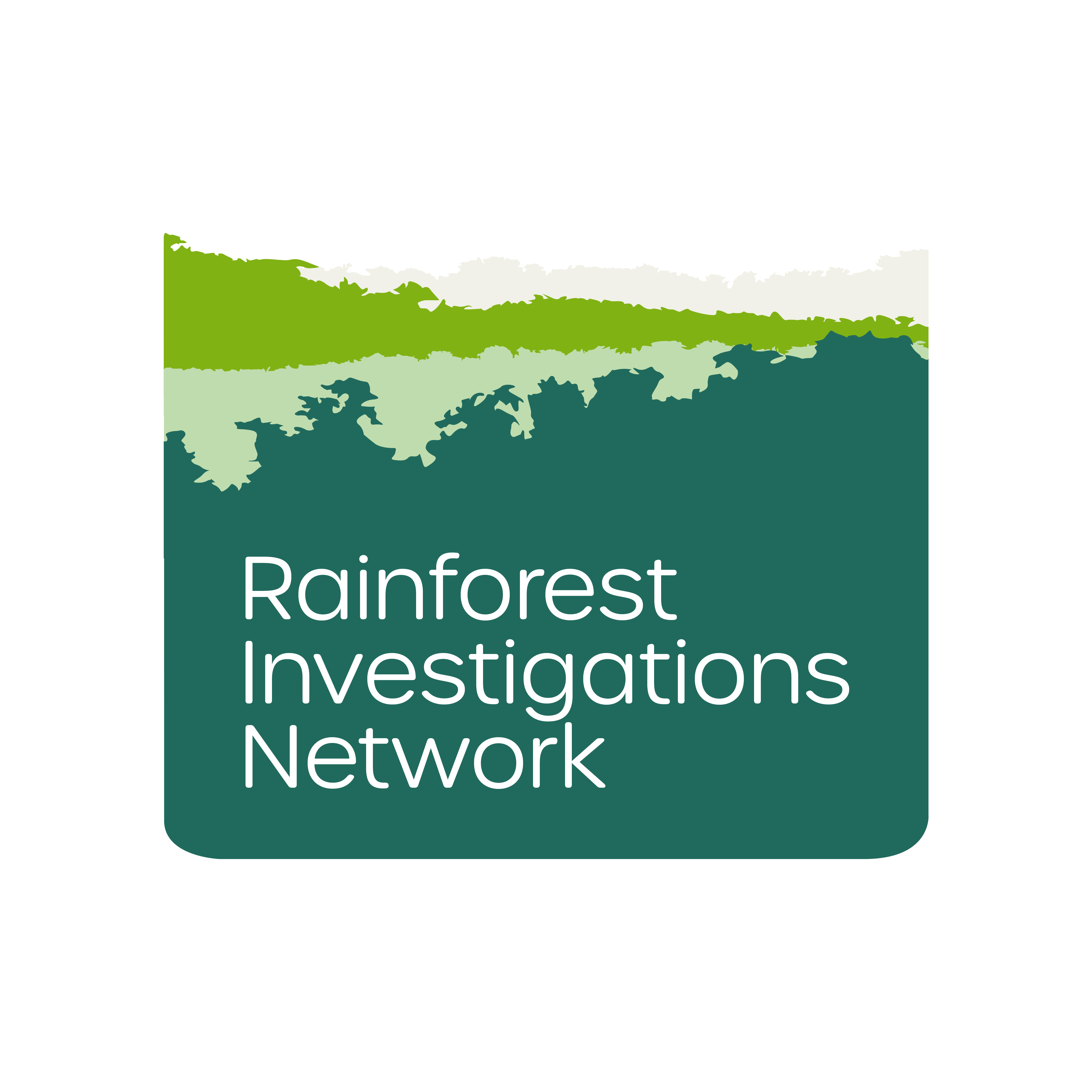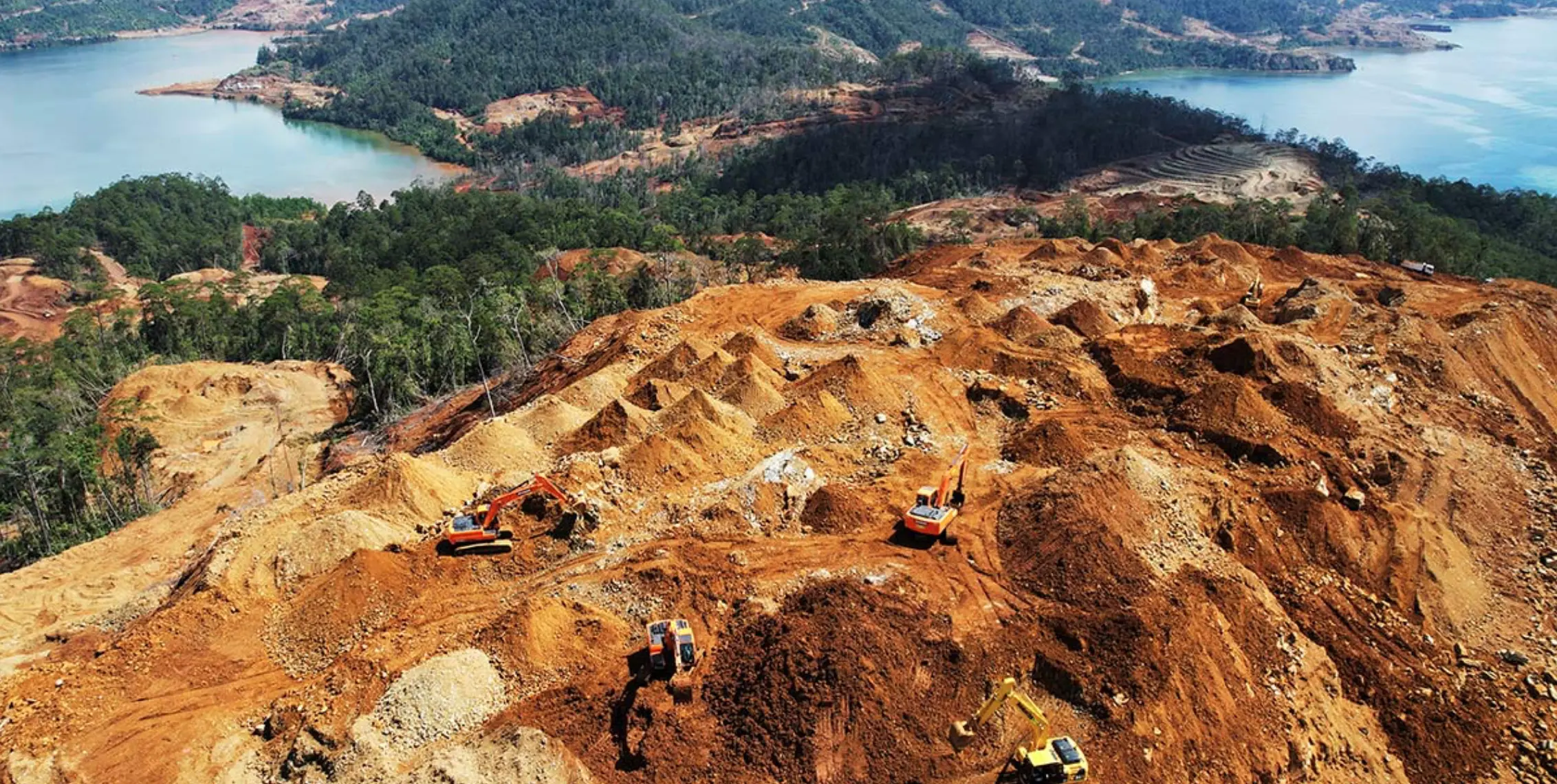
Tens of nickel mining companies in Central Sulawesi and Southeast Sulawesi—the two provinces with the largest nickel reserves in Indonesia—did not participate in any bidding process, used forged documents, and are not authorized to clear forestland. Illegal nickel was sold to China during a moratorium on ore export. The government’s intention to build an environmental-friendly source of energy for electric vehicles has led to deforestation over seven times the size of Jakarta, an operation involving politicians, government officials, business owners, and former activists.
Karlan Azis Mannessa appeared to tense when Tempo showed him a document approving the reservation of a nickel mining area for his company in Central Sulawesi suspected of being counterfeit. Unlike his responses when asked about other things, this time the 52-year old businessman from Palu had to take a sip of his lychee iced tea before answering. “This is an administrative issue,” he said when we met at a café in South Jakarta in mid-January.
Approval of land reservation is an essential document needed by all nickel mining companies before registering on the Minerba One Data Indonesia (MODI) system at the Ministry of Energy and Mineral Resources. Minerba is an acronym for minerals and coal, two types of natural resources whose mining is regulated through computerized application.

As a nonprofit journalism organization, we depend on your support to fund more than 170 reporting projects every year on critical global and local issues. Donate any amount today to become a Pulitzer Center Champion and receive exclusive benefits!
Being registered on MODI is the goal of all mining company owners. As soon as their company appears on the online system, it means they are authorized to mine nickel ore. The problem is, not all the companies obtaining the predicate of “clean and clear” have in fact met all conditions complying to regulations.
A two-month Tempo investigation, begun in December 2021, unearthed alleged use of forged documents by companies owned by Haji Karlan—as Karlan Azis Mannessa is usually known. There are twelve nickel companies in Central Sulawesi registered on the government’s system suspected of obtaining authorization through inappropriate means. Their total mining concession area covers 27,481.53 hectares.
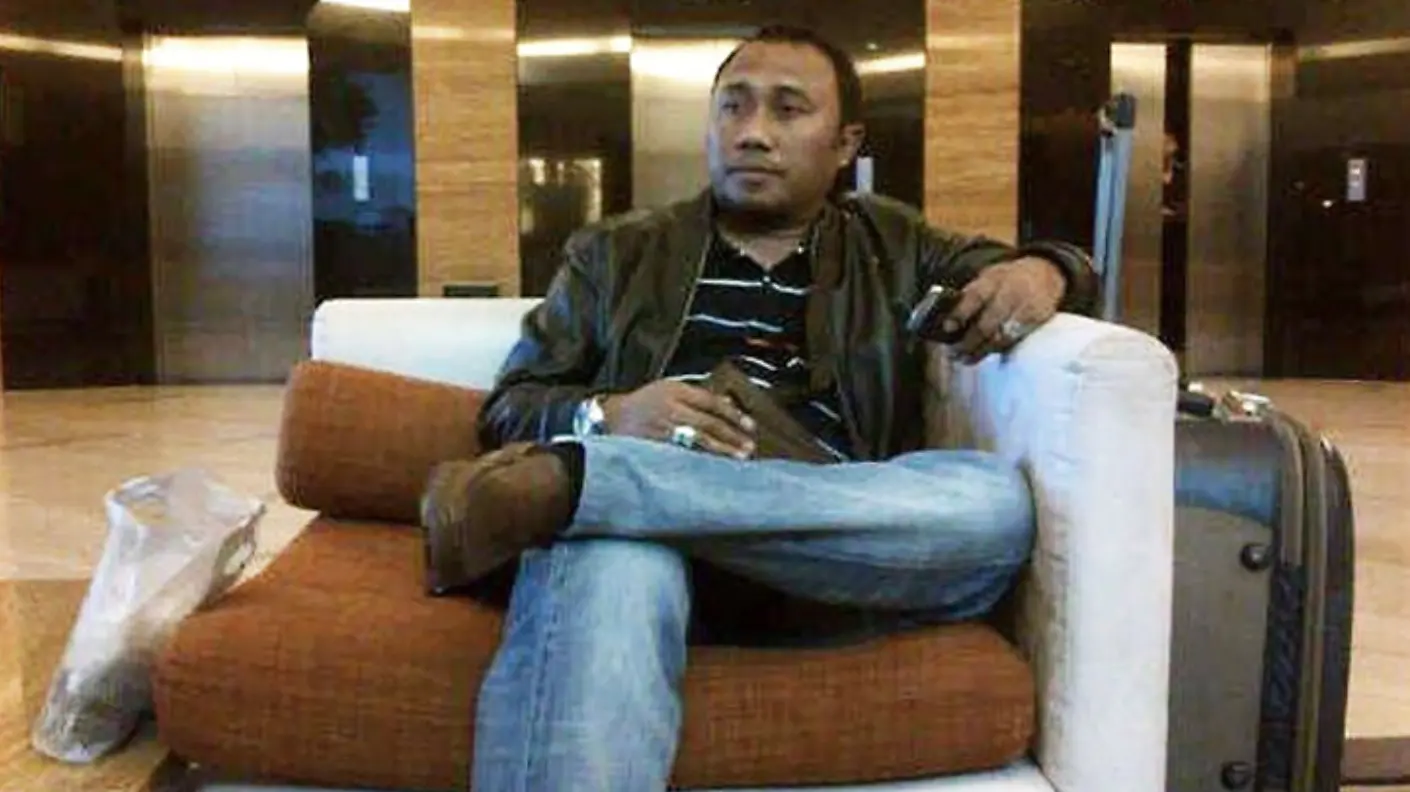
Haji Karlan has four companies registered on MODI. Allegedly, the nickel mining licenses for the four companies—PT Citra Teratai Indah, PT Gemilang Bumi Lestari, PT Hikari Jeindo, and PT Kurnia Degess Raptama—were based on fraudulent documents.
Haji Karlan has a nickel mining concession for nearly 15,000 hectares of forestland in Morowali, Central Sulawesi. This means his mines cover an area larger than the City of Bogor, West Java. Most of his concessions are in the mining area of PT Inco or PT Vale Indonesia.
Haji Karlan is of relatively good repute in Central Sulawesi. Besides being in the nickel and coal mining business, he is also close to political circles. In addition to owning companies, he has an alliance with the Kalla family in PT Mitra Karya Agung Lestari, a nickel mining company in Morowali. Achmad Kalla, the younger brother of former Indonesian Vice President Jusuf Kalla, is a company commissioner.
One of Karlan’s spurious nickel company authorizations is the license for PT Citra Teratai Indah, covering 689 hectares. Anwar Hafid, Regent of Morowali in the 2007-2018 period, signed a document to reserve land for the company on September 28, 2008. The document is stamped with the DESDM logo, referring to the Office of Energy and Mineral Resources. However, that year the DESDM was still known as the Office of Mining and Energy. “That has to be clarified with whoever issued it,” said Karlan.
Anwar Hafid said the DESDM stamp was not yet in effect in 2008. However, he quickly defended Karlan. “As far as I recall, he has authorization to conduct mining,” said this Democrat Party politician who is presently a member of the House of Representatives (DPR). “If he has a cover letter from the current regent, that means his authorization is no forged document.”
The cover letter Anwar was referring to is a letter indicating the grant of a Mining Business License (IUP) submitted to the Governor of Central Sulawesi. Cover letters for Karlan’s four companies were issued on September 1, 2021, and signed by Taslim, the current Regent of Morowali.
The issue is, Taslim stated that he did not issue those letters. He reported the matter to the police under the claim he never signed them. “The regent’s signature was forged,” said Bahdin Baid, Head of the Legal Division of the Morowali Regency Regional Secretariat, on Monday, January 24.
According to Bahdin, the change in nomenclature from Office of Mining and Energy to Office of Energy and Mineral Resources took effect when Regional Regulation Number 4 of 2008 regarding the Organizational Structure and Work Procedures of Regional Offices in Morowali was authorized in July 28, 2008.
Taking note of the regional regulation, two of Karlan’s companies, PT Gemilang Bumi Lestari and PT Hikari Jeindo, should have used the DESDM abbreviation, because the land reservation documents were issued on November 11 and 13, 2008. “Whatever,” said Karlan, regarding the muddle of the documents. “It must be an administrative error or something.”
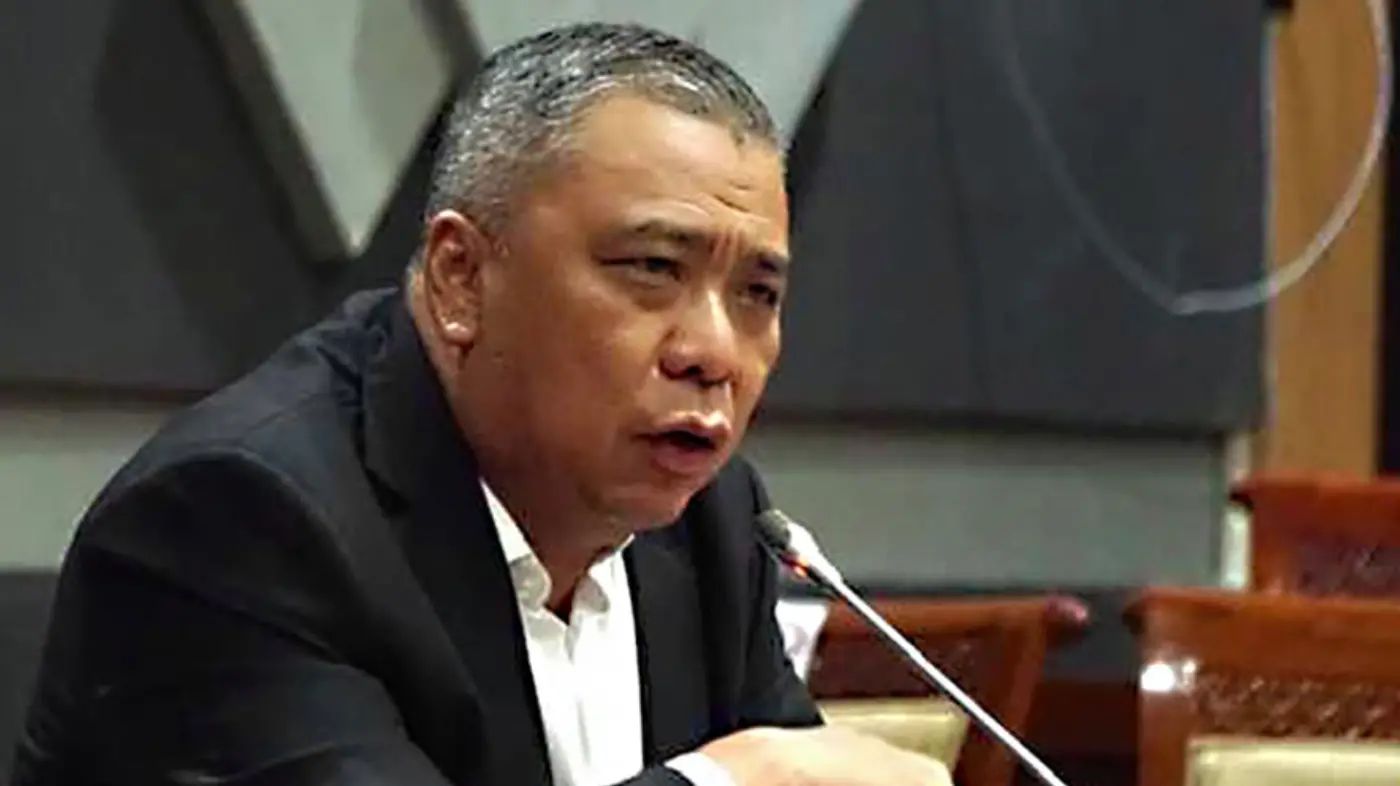
As it turns out, those forged stamps were also used on an authorization document for PT Graha Mining Utama. This company’s stock is listed in the names of Ahmad Ali’s offspring. The member of the DPR’s Legal Affairs Commission who hails from Palu is currently Vice General Chair of the NasDem Party, the party which garnered the fifth-most votes in the 2019 General Election and is one of the coalition parties supporting President Joko Widodo.
Ahmad Ali, 52, nominated himself to run for Regent of Morowali in the election in 2013, but did not win. Speaking to Tempo, Ali made no attempt to deny information he had been involved in drug abuse in 2003 and served six months in prison. He even admitted he once funded terrorist activity in Poso, Central Sulawesi. His career took off when he became a NasDem politician. Ali claims to have Rp5 billion (US$345.000) in monthly income.
Nickel is his big moneymaker. In Central Sulawesi, Ahmad Ali and Haji Karlan have the largest nickel concessions, despite Ali only owning one company registered on MODI, namely PT Graha Mining, covering 624.53 hectares.
Approval of land reservation for PT Graha Mining’s nickel mining zone was issued on July 31, 2008, two days after the Office of Mining and Energy changed its name to the Office of Energy and Mineral Resources. The same as Karlan’s company, the authorization document for the company should have had the DESDM stamp on it.
According to Ali, to determine authenticity, company documents must be verified by the Morowali Regency Government. “Take a look at the registration number,” he said. The matter is, said Bahdin Baid, the Morowali government cannot check it out because the mining authorization record was confiscated by police when they investigated alleged corruption in nickel mining licenses in Sulawesi in 2012.
Karlan and Ali used legal opinions issued by the Central Sulawesi Attorney General’s Office to register their companies on the MODI system of the Ministry of Energy. Minister of Energy and Mineral Resources Regulation Number 26 of 2018 states that to be granted mining business licenses (IUPs and special IUPs) on disputed concession land, a company must obtain determination by a court or related authorized institution.
The government interpreted “related institution” to mean the provincial attorney general’s office (AGO), the Ombudsman office, and the state administrative court (PTUN). If any of the three institutions states validity for a company requesting a nickel mining license, then the Ministry of Energy will register it on MODI. As of January 2022, the Central Sulawesi AGO has issued eighty legal opinions for eighty companies. Twelve have been successfully registered on MODI.
Muhammad Neng, Head of Mining at the Central Sulawesi Office of Energy and Mineral Resources, said going with the legal opinion of the provincial AGO, court, or Ombudsman office, is the result of interpretation to the phrase “related institution” in Minister of Energy Regulation Number 26 of 2018. There are ten nickel companies in the province which acquired legality through Ombudsman office Final Report (LHAP) audits and are currently being verified by the Ministry of Energy.
According to Hery Susanto, an Ombudsman official, the legal opinions made by the provincial AGO should be used as material for examination by the court. Syahrudin Ariestal Douw, a former activist at the Mining Advocacy Network NGO, now practicing law, said the party drafting the text of the legal opinion by the provincial AGO is usually the lawyer taking care of administration for a company’s mining license.
This is why Syahrudin’s name turned up in a document for administering legal opinions for CV Waskita Karya and PT Anugerah Tompira Nikel. “I only made cover letters for the government’s office and did not personally administer them,” he said.
Hery is known as an Ombudsman official who has issued LHAP for many nickel companies. The Ombudsman office is a state institution charged to handle matters related to government maladministration. “The opinion of the provincial AGO or Ombudsman should not be a legal foundation for registration on MODI,” he said.
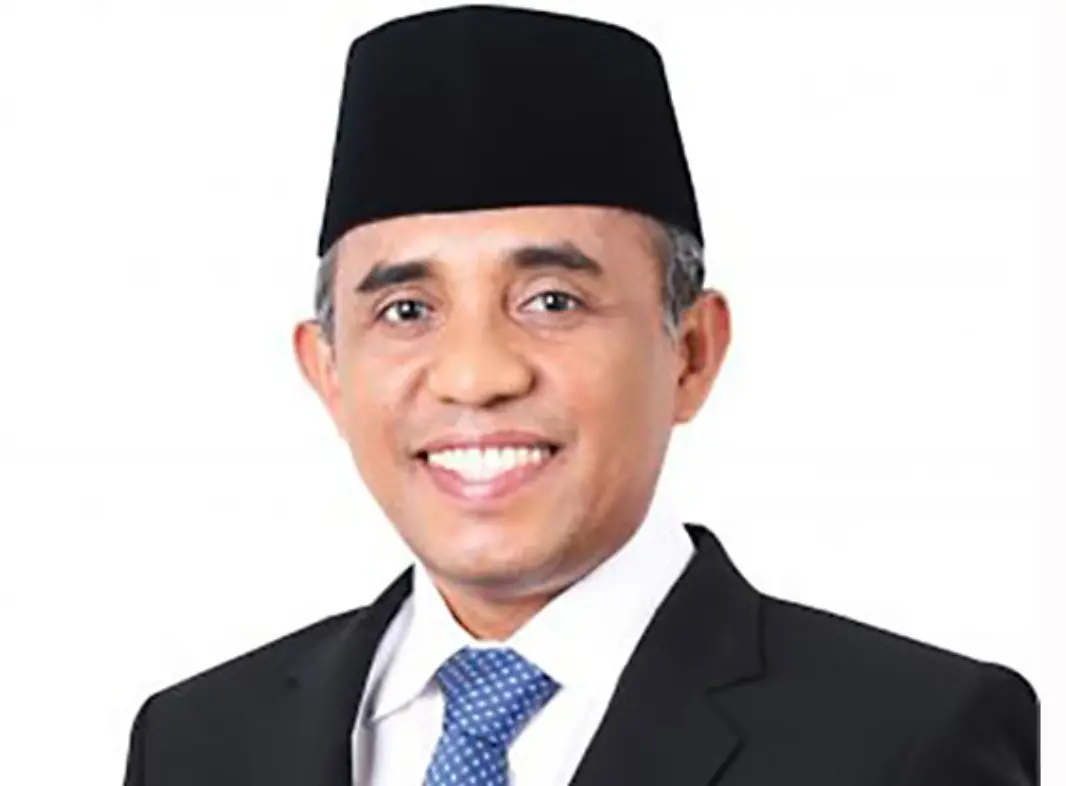
Concern arises because LHAPs are not issued free of charge. Business owners must fork out Rp1.5 billion (US$ 104.000) to obtain an LHAP in a short time frame. Hery obviously denied this. “If a LHAP is issued quickly, it does not mean bribery was involved,” he said. “It simply depends on how comprehensive the (required) documents are.”
Nevertheless, hints of bribery extend to the administration of legal opinions at the Central Sulawesi Provincial AGO. Some business owners stated they fork out some Rp5.5 billion (US$ 380.000) to get their companies registered on MODI using the legal opinion route. That money is spread over many stages: from the Central Sulawesi Energy Office, the Provincial AGO, to officials at the Ministry of Energy.
Bribes for regents are given separately in return for issuing cover letters and the documents required to request a legal opinion. After the Provincial AGO issues a legal opinion, the governor sends it to the Directorate General of Minerals and Coal to be entered into the MODI system.
Anwar Hafid, Regent of Morowali between 2007-2018, said rumors of bribery for nickel mining company licenses were already circulating when he came to office. However, Reza Hidayat, Head of the Legal Information and Public Relations Section at the Central Sulawesi Provincial AGO, said such information regarding bribery is unsubstantiated. “Legal opinions are issued upon request from government, not business owners,” he said.
Haris Kariming, Head of the Central Sulawesi Office of Energy and Mineral Resources, said he never asked business owners for money when requesting the Provincial AGO to make legal opinions. However, two expert staff members of Central Sulawesi Governor Rusdy Mastura reportedly were intermediaries for submitting requests for legal opinions from the Provincial AGO.
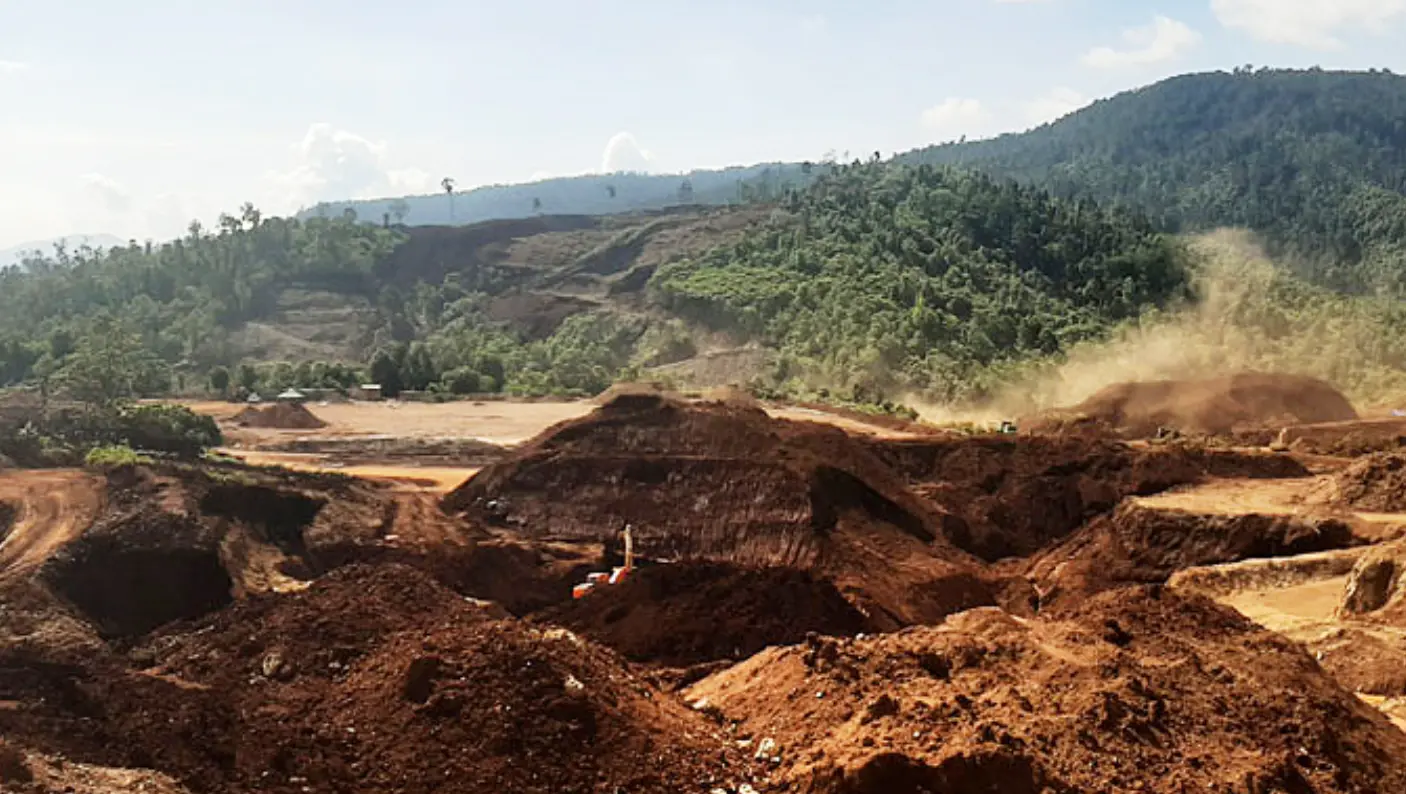
The two in question are Ronny Tanusaputra and Ridha Saleh. Ronny is listed as helping at PT Niungriam Energy, while Ridha purportedly facilitated matters for PT Global Arca and PT Gemilang Mega Sakti. Ridha clarified his involvement for obtaining a legal opinion for that company. However, this vice chair of the National Human Rights Commission between 2007-2012 requested his clarification not be published.
Ronny is currently President Director of PT Tambang Nickel Sulteng, a state-owned enterprise in Central Sulawesi. He said he only gave PT Niungriam assistance because they had run into difficulty trying to obtain a legal opinion. “I handled no administration nor facilitated it,” he said.
A legal opinion for PT Niungriam was issued eight days after the Governor of Central Sulawesi submitted a request to the Provincial AGO on December 14, 2021. A week later, Governor Rusdy sent the legal opinion to the Directorate General of Minerba at the Ministry of Energy. “MODI registration is self-service and no fees are charged,” said Satya Hadi Pamungkas, Head of the Regional Mineral Management Section at the Ministry of Energy.
As it turns out, there are also problems with PT Niungriam’s land reservation approval documents. Those authorizing documents used the stamp of the Office of Mining and Energy. They should have borne the stamp of the Office of Energy and Mineral Resources because they were issued long after reorganization of government offices in Morowali. “I do not follow this,” said Erick Koswi, a commissioner at PT Niungriam.
The Rp5.5 billion amount to facilitate attainment of a legal opinion—from the Provincial AGO up to MODI registration—is peanuts compared to profits made from nickel mining. Adam Wahab, owner of PT Bumi Kalaena Persada, concurred with Ahmad Ali’s statement. He was of the opinion, the net profit for nickel mining in Central Sulawesi amounts to about Rp1 billion (US$69.000) per week.
The calculation is simple enough. The price of ore with 2 percent nickel content in November 2021 was US$55.72 per ton. A company produces 30,000 tons of ore a month. This means each company rakes in Rp6.3 billion (US$ 435.000). About Rp3-4 billion is left after deducting production and transportation costs.
In addition to the relatively low cost of bribery, obtaining a nickel mining license through legal opinion from the Provincial AGO can be considered a fast-track procedure. Law Number 3 of 2020 regarding Mineral and Coal Mining regulates that special concession mining business licenses (IUPs) which have been revoked can be obtained through bidding. Article 75 paragraph 3 regulates that State-Owned Enterprises are given priority over these former concessions.
The concession areas of the twelve nickel companies in Central Sulawesi registered on MODI are mostly in the concession area of PT Vale Indonesia in Central Sulawesi and Southeast Sulawesi. For instance, the concession of PT Graha Mining Utama, owned by Ahmad Ali, on 624,53 hectares, is in the South Bahadopi Bloc in Lalampu Village, Morowali.
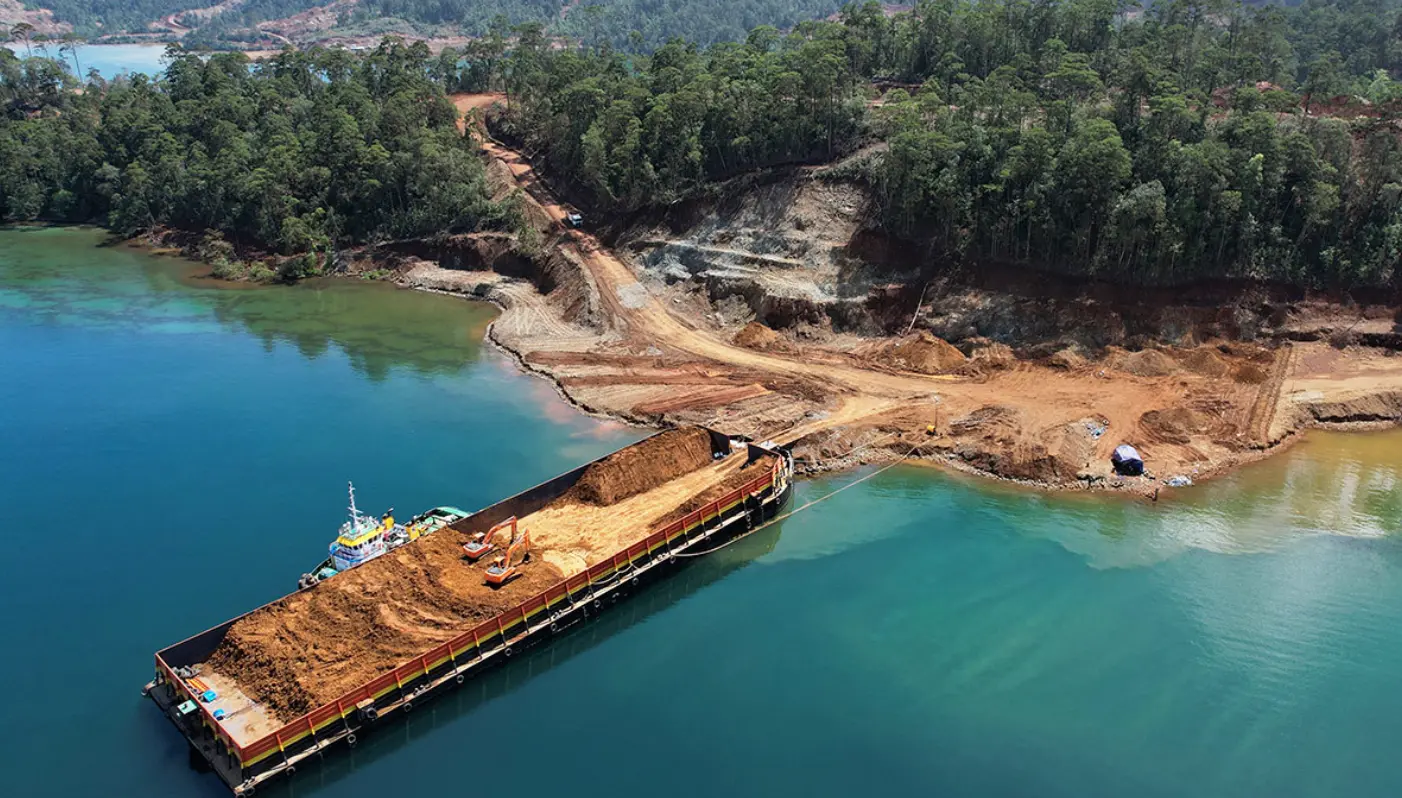
PT Sinar Morokarta Perkasa, PT Kayu Kreasi Meredian, and PT Bumi Matoa Indah used to operate in that bloc. The licenses for the three companies were revoked for overlapping the area of PT Vale. Before and after the license revocation of the three companies, there has been no trace of PT Graha Mining. This is despite having a nickel mining license as one condition for obtaining a legal opinion from the Provincial AGO.
Ahmad Ali says the license for PT Graha did not make it to the provincial level when authority to issue nickel mining licenses shifted from the regent to the governor in 2016. Now the Job Creation Law has created an opportunity for Ahmad Ali to verify his mining license. “As long as one has the required documentation, can prove it, and has been tested by a court, a Provincial AGO, or Ombudsman, you can get it back,” he said. “If I have violated regulations, then other companies on MODI should also not have been able to get registered.”
Another company in the South Bahadopi Bloc registered on MODI is PT Citra Teratai Indah, owned by Haji Karlan. Its area used to be on land concession of PT Oti Eya Abadi owned by Ahmad Ali. In 2019, PT Oti’s concession area shrunk to 3,300 hectares.
A year later, the area outside the reduced area became a mining zone with concession held by PT Citra Teratai. According to the law, the company should have first obtained authorization through bidding to continue mining activity. “If bidding was done, all the licenses should have been revoked, including for PT Oti Eya Abadi,” said Karlan.
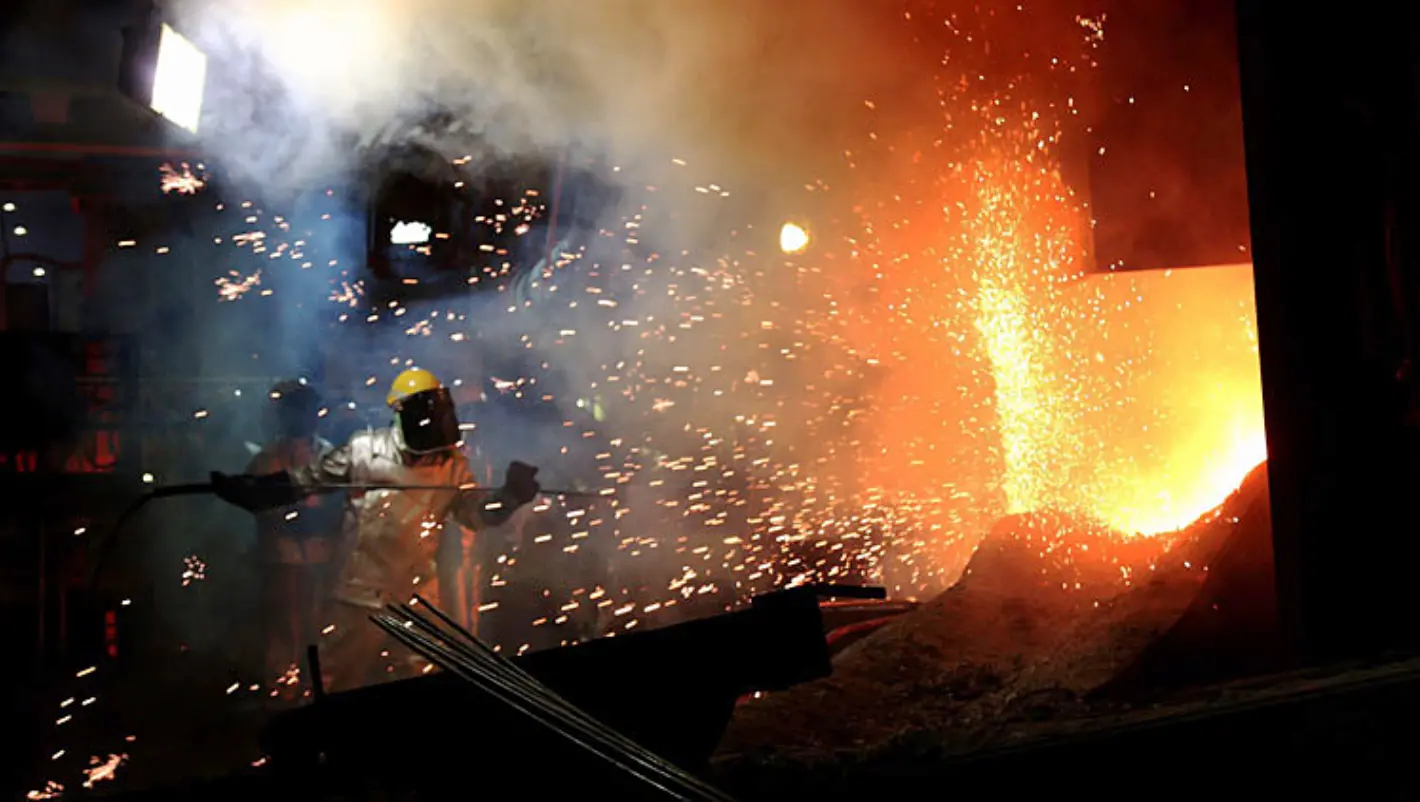
A point of contention lies in the fact that PT Citra Teratai’s concession is also claimed by PT Bumi Kalaena Persada. Adam Wahab said they obtained the concession for the zone through determination by state administrative court. “When we went to register on MODI, someone had already registered that concession,” he said. Karlan claims although the license was issued in 2008-2009, PT Bumi Kalaena was founded in 2021.
This state of confusion has not been examined by the Ministry of Energy and Mineral Resources. They have also ignored the companies whose concession zones are in protected forest area, such as PT Kurnia Degess Raptama owned by Karlan. Some 80 percent of the area, covering 6,829 hectares, is located in Morowali protected forestland. “I will request for the forest’s status to be altered,” said Karlan.
Responding to this issue surrounding nickel mining licenses in Central Sulawesi, Sugeng Mujiyanto, Secretary of the Directorate General of Minerals and Coal at the Ministry of Energy, said the ministry has no authority to determine validity of nickel company licensing documents issued by regional governments. “We only check if overlapping licenses have been issued,” he said.
Bahdin Baid, Head of the Legal Affairs Division of the Morowali Regional Secretariat, said that the MODI filtering system at the Ministry of Energy is weak because neither the ministry nor the provincial government checks on nickel mining companies in Sulawesi before entering them into the system. “They never verify the data with us.”
This reportage is published in cooperation with the Mining Advocacy Network, the Auriga Nusantara Foundation, and the Kompas Peduli Hutan Foundation, with support from the Pulitzer Center's Rainforest Investigations Network.






